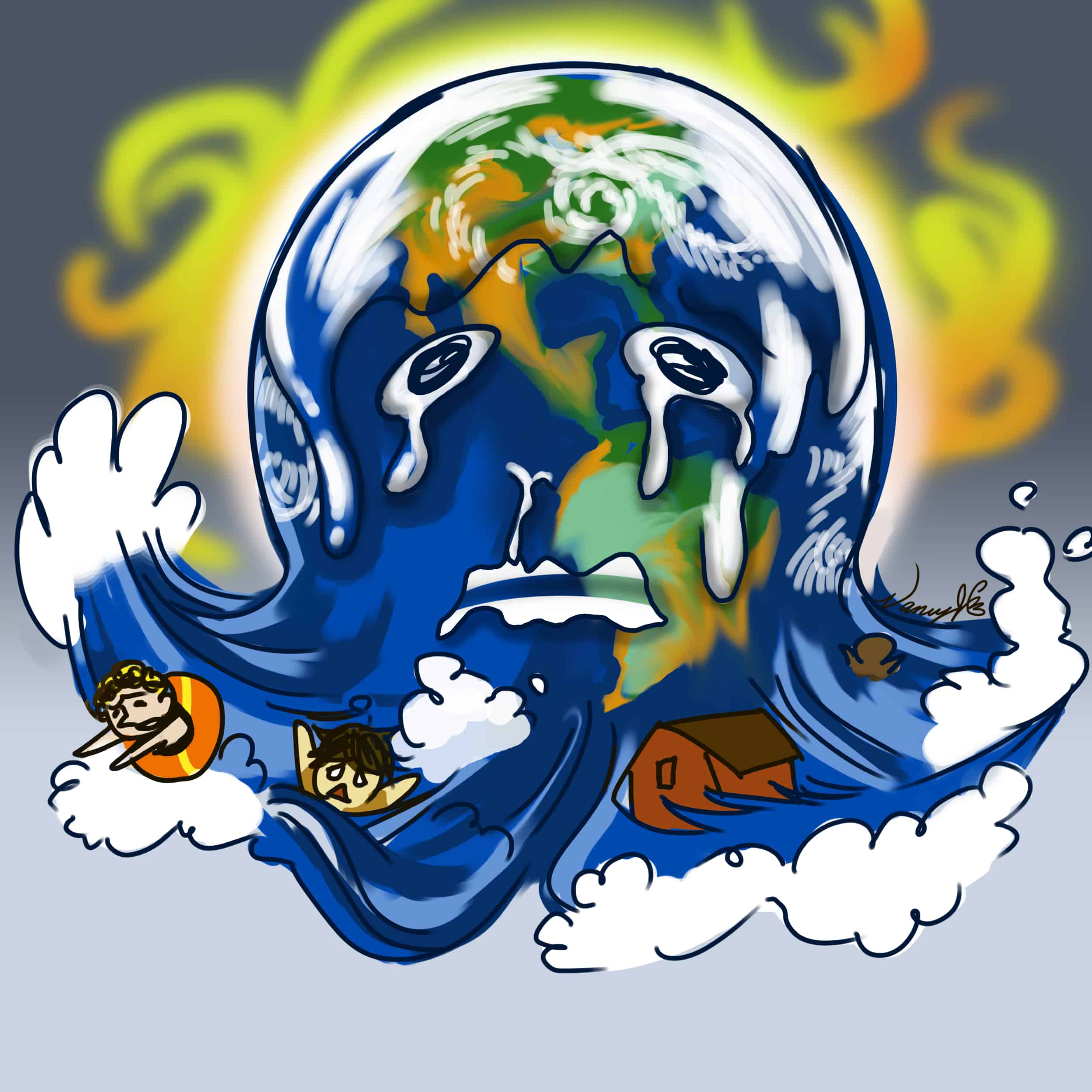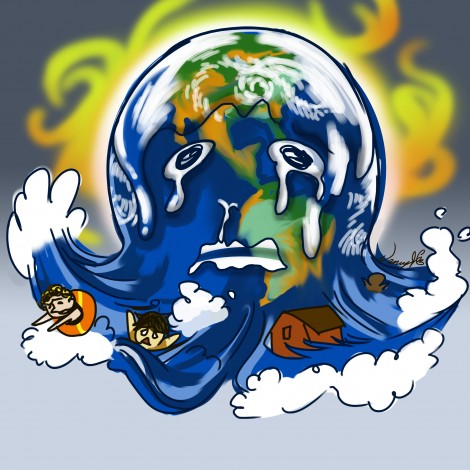The term “global warming” is now widely associated with Al Gore, Jake Gyllenhaal movies, and a scorching day at the beach. Are you guilty of whipping on your stylish sunglasses, basking in the sun, and muttering, “thank you greenhouse gases”? U of T professor Danny Harvey, by contrast, believes we are “heading towards a cliff.” Harvey’s passionate lecture on September 27 at University College addressed global warming and food and water security.
“It’s like it’s a non-event. We’re in a complete state of denial,” Harvey said, Harvey pointed to the existence of “paid liars”: researchers told to hide scientific facts such as the recent report of record-low Arctic ice volumes. The rise in world temperatures as a result of infrared radiation being trapped by greenhouse gasses, he said, was a fact and not a myth.
The impact of climate on food production does not follow a simple, linear pattern. As temperatures rise, climates change, and this can mean either food shortages or surpluses in different regions. Water supply is already decreasing in many areas of the world. With the populations of these areas growing, and with temperatures rising, water is evaporating quicker in some places and raining down harder in others.
Harvey’s lecture emphasized the “psychology of denial.” He explained that there are many factors that contribute to the denial of global warming: religion, fear of government control, threat to the fossil fuel industry, and the disruption of established habits. Some religious believers hold that God made the world for us to use, and if the temperature is rising, He wants it this way. Others fear that the government will enforce too many laws, constricting freedom. Those in the fossil fuel industry fear that if most countries switch over to non-gas powered appliances, they will lose incredible amounts of money. From a psychological perspective, some think we may lose our identity as we change our habits.
Harvey proposed a few strategies to help convince those who are in denial. He noted that solutions to global warming must be presented that invoke minimal fear in the deniers. The religious community must be engaged by appealing to ethics, that although God may have made the world for us, he wants us to protect, not trash it. Harvey is confident that if at least 30 per cent of current deniers are convinced to make a change, we may be able to lessen the rate of global warming. But we must be realistic: a considerable portion of the population are simply hardwired to deny global warming.
Harvey’s research findings are as important as they are frightening. He noted that at the current melting rate, all Arctic sea ice could be gone by 2030, causing devastating rises in sea levels and immense changes to the weather. As Harvey eloquently and passionately noted, it is time to wake up to the reality of global warming.



